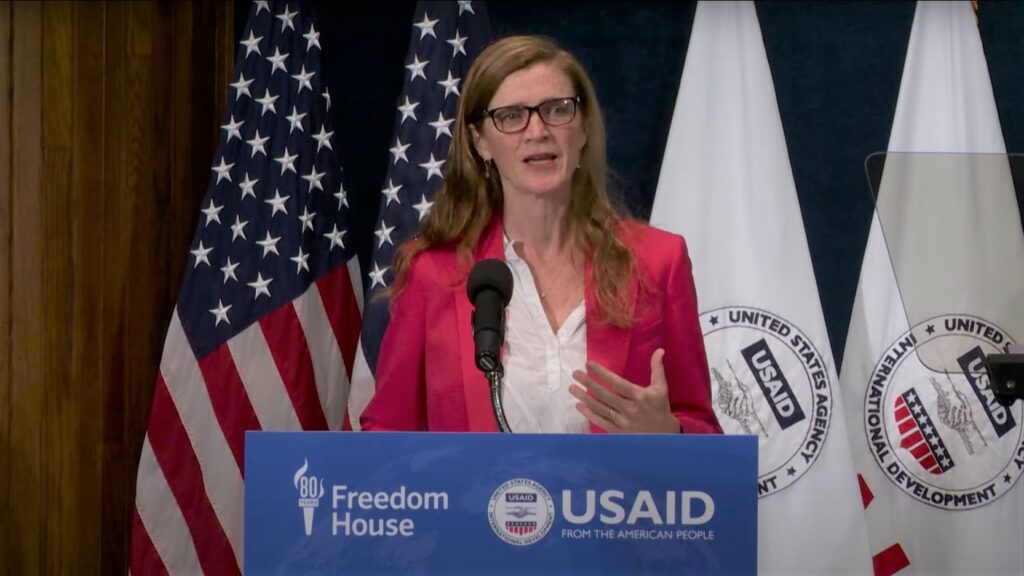At the World Economic Forum today, Administrator Samantha Power called for more resources and action toward a widely neglected, yet highly tractable issue affecting one in two children in low- and middle-income countries: lead poisoning.
Globally, lead poisoning kills at least 1.6 million people each year – more than mortality caused by HIV and malaria combined, with the vast majority of these deaths in low- and middle-income countries. Lead is a potent neurotoxin with no safe level of exposure, and lead poisoning can cause severe brain damage, impairing educational attainment and reducing future productivity. Lead exposure may account for upwards of one-fifth of the educational gap between rich and poor countries, and creates at least a $1 trillion drag on the global economy. Despite all of this, funding by donors toward lead mitigation efforts in low- and middle-income countries amounts to approximately $15 million per year.
Administrator Power advocated for a global drive to support low- and middle-income countries in rolling out and enforcing binding regulations to curtail lead in consumer goods like paint, spices, and cosmetics. These actions alone have the potential to save hundreds of thousands of lives each year, as well as prevent cognitive impairments and improve educational outcomes for hundreds of millions of children. Notably, burgeoning efforts toward removing lead from consumer products are highly cost-effective, reflecting an outsized opportunity to save many lives with limited funding.
In line with this goal, Administrator Power committed to activating USAID’s Missions to champion the phase-out of lead from consumer goods. She noted that with Missions in more than 80 countries, including 51 that have yet to introduce binding regulations on lead in paint, USAID is well-positioned to convene around, advocate for, and support lead mitigation efforts by partner governments.
In particular, Administrator Power announced that USAID will join the Global Alliance to Eliminate Lead Paint, a partnership that has catalyzed legally binding controls on lead paint in almost 40 countries. This makes USAID the first bilateral development agency to join the Alliance, where it will partner with other U.S. government agency members like CDC and EPA. Administrator Power also announced $4 million toward lead mitigation efforts, including pilots in India and South Africa to support local governments in developing mitigation strategies and addressing exposure risks, especially among children, who are particularly vulnerable to the effects of lead; as well as conducting a nationwide survey of blood lead levels in children in Bangladesh.
